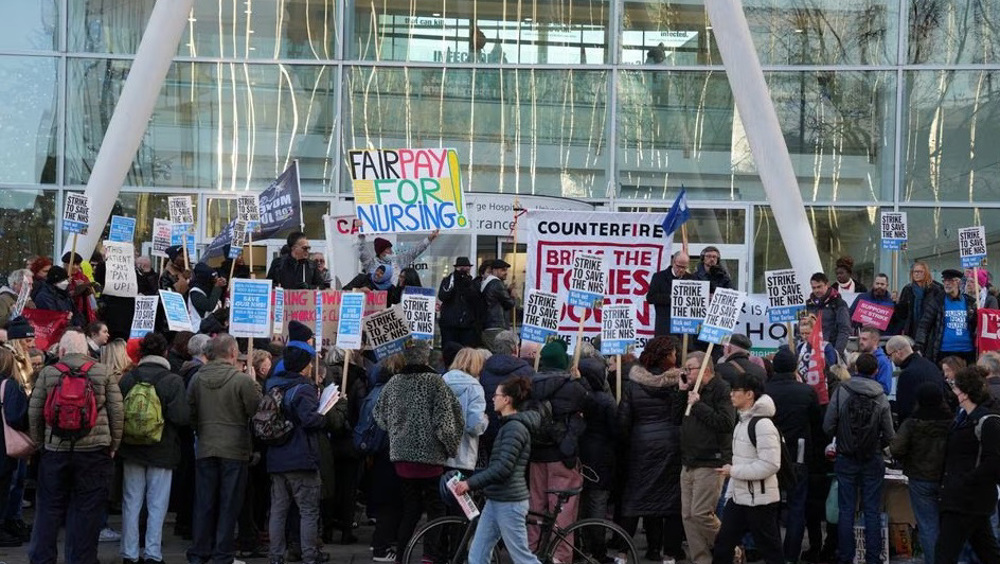
Teachers in northern England will walk out on Tuesday, with the majority of schools expected to either restrict access to some pupils or fully close, the National Education Union (NEU), the country’s largest teachers union, said in a statement.
They will be followed by their colleagues in the Midlands and eastern regions on Wednesday. The industrial action will continue on Thursday in London and other parts of southern England and Wales.
NEU had earlier announced that its members were to walk out in February adding that the industrial action was prompted by the government's refusal to increase pay amid double-digit inflation.
The union has called for a fully funded, above-inflation pay rise following a decade of eroded wages.
Kevin Courtney, the NEU joint general secretary, predicted more than 200,000 teachers to take action and 50,000 more to join since the strike was first announced a month ago.
“I think a majority of schools will be affected by the dispute. Some of them with full closures and many more with partial closures,” he said ahead of the strikes in the north of England.
“Some secondary schools will be completely closed, others will have particular year groups in and a similar pattern in lots of lots of primary schools.”
The country’s largest education union has seen 50,000 new sign-ups since the strikes were announced six weeks ago, Courtney noted.
British Education Secretary Gillian Keegan has called strike action “unforgivable”, adding that children deserve to be in class, especially after the coronavirus pandemic.
More than 23,000 schools and millions of students across the country were affected in last month's strike in England as thousands of teachers took to the streets after a decade of meager payments in a state-funded school system.
According to the Department of Education, 9.3 percent of state schools in England were entirely closed in the previous strike and almost 45 percent were partially open with restricted attendance.
Less than one in five elementary schools was kept open as teachers took to strike against the government's resistance to raise wages in line with the skyrocketing inflation.
The wave of paralyzing strikes in England and Whales came after the workers’ demands for a pay increase were rejected by the government, as the government has offered civil servants a 2 to 3 percent pay hike and says it cannot afford high increases that match the soaring inflation.
During the past months, thousands of healthcare workers, teachers, nurses, airport baggage handlers, border staff, driving instructors, bus drivers, firefighters, and postal workers have walked off their jobs to demand higher pay and to be able to cope with soaring inflation and worsening cost-of-living crisis.
February has already seen more than 500,000 people take industrial action in the country. With public strike fatigue nowhere in sight, the walkouts are likely to continue for months.
In reaction to the dispute, the government is set to unveil strike legislation in the near future to contain industrial actions in its key sectors, forcing the staff to maintain a basic level of services during strike time or face dismissal.


No comments:
Post a Comment